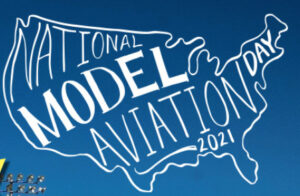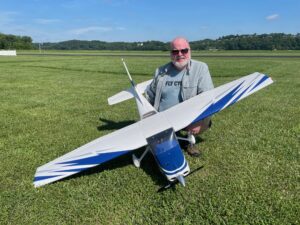I recently had someone ask the following question, “If an application calls for a 40 or 60 Amp ESC, if you put a 130 Amp version on there is that OK or will it damage it?”
I’m not going to claim that I am an expert on MOSFET Transistors etc so consult your local electrical engineer for those detailed discussions but I do have access to a few tools!
How does an ESC work anyway?
Essentially, an ESC or Electronic Speed Controller is a miniature version of a variable frequency drive that you would see in industrial applications. Our ESC takes the Direct Current from our battery (typically a Lithium Polymer Battery these days) and converts it to 3 phase Alternating Current Power. By changing the phases of the 3 conductors going to the motor, you are able to change the magnetic field causing rotation of the magnet in the rotor or stator of your motor depending on whether it is an In-Runner or an Out-Runner style. The following video is a decent 20 minutes to learn more about them, how they work, setting, etc. After about 10 minutes they started talking about SimonK and BLHeli and I lost interest because I am a staunch Castle and Hobbywing fanboy.
Back to the Question at Hand:
Many of you have heard me exclaim my undying love for the eCalc tools for calculating current capacity and usage. To get your own account to use these tools, check out the following website – https://www.ecalc.ch/ its only $10 a year and worth every penny if you assemble your own power systems. I decided to pick a scenario and run each ESC through the calculation tool to see if there was any improvement or degradation of performance, overheating, etc.
The Comparison Scenario: I took a Rimfire .80 motor running off a 3700mah 6S LiPO, drastically under-propped it with a 10×6 Xoar propeller so that it wouldn’t pull more than 25 amps at full throttle and bolted it to a an 80oz airframe with a 900in2 wing. I then only changed the ESC to see what the differences were for that common usage scenario.

The ESC Comparison: I chose a Castle 25A Talon and a massively oversized Talon HV 120 for the comparison. Both will handle the current required by the 10×6 prop and pull the plane along at a theoretical 72mph based on the 500kv Rimfire .80 turning at 12,600 rpm.



The Final Analysis:
The Talon 120 marginally performed better than the Talon 25 but the little bit of extra efficiency and motor performance was lost due to the drastic increase in weight. The big dog was able to put up slightly more watts of power(365 Watts vs. 346 Watts) which resulted in more RPM’s (10,247 vs 9,975) and a slightly 57’/min better climb rate. The little ESC just outperformed in this scenario in power to weight ratio. It weighed 0.6 oz versus 6.6 oz. resulting in 560 Watts/ESC Oz versus 55 Watts/ESC oz! So the extra weight of the larger esc caused the flight time to be diminished by 3%. Not to mention, if the Talon 120 would even fit in your plane! If speed is Watt you are after (See what I did there!) then its pretty much negligible with a 1mph difference by the bigger ESC producing slightly more power and RPM’s. Oh by the way, eCalc estimated the speed of the plane to be around 53mph which is around 27% slower than the 71.6mph we estimated.
The Bottom Line:
Going with a larger ESC will work and it isn’t impacted by the smaller motor from what I can tell. You can use the bigger one if you want or if that is all you have. However, it could come at a performance loss due to weight. And there is always the risk that if something were to happen and you locked up the motor, the 25A ESC won’t deliver much more than that. The 120HV on the other hand will deliver 120+ Amps and if you have a small motor attached to it, will result in probably burning up the motor completely as well as start a fire etc. Personally I would try to match the ESC to the performance of the motor to keep things balanced.
See you at the field!

